Rob Bignell's Blog, page 334
May 20, 2014
Use concrete details to make writing more vivid
When writing descriptions, make them concrete. That is, make them tangible by appealing to the five senses of sight, smell, sound, taste and touch. 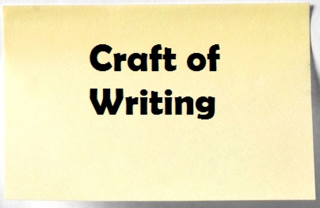
For example, the sentence The street was mysterious is abstract rather than concrete. It’ exposition and uses passive voice. It’s bland.
You could instead write A thick fog shrouded the street, diminishing the lights to mere auras that seemingly hung suspended in the air. By giving concrete details that appeal to the sense of sight, this sentence infers mystery.
Concrete details work better than an abstraction because they:
g Draw readers emotionally into the scene – Abstract words are vague, and when using them you always risk readers bringing their own imagined concrete details to the story.
g Show point of view character’s emotional mood – Abstract words usually are too general; there are many degrees of happiness and anger, for example. Concrete details, however, better delineate the degree to which a character feels an emotion.
Look back at passages you’ve written, especially those that you consider flat or vanilla. Circle the abstract words. Now rewrite the passage by providing concrete details that show the abstraction. After the rewrite, you’ll find that the passage reads much better.
Need an editor? Having your book, business document or academic paper proofread or edited before submitting it can prove invaluable. In an economic climate where you face heavy competition, your writing needs a second eye to give you the edge. I can provide that second eye.
<A HREF="http://ws-na.amazon-adsystem.com/widg... Widgets</A>Related articles
 Five style issues to watch for in your story
Five style issues to watch for in your story Add color to your fiction manuscript
Add color to your fiction manuscript Treat readers to vivid passages in your story
Treat readers to vivid passages in your story Create meaningful settings in your story
Create meaningful settings in your story
May 19, 2014
Valley Bookseller hosting editor’s book signing
Valley Bookseller 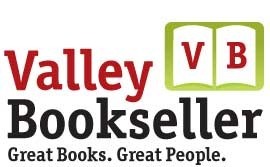 in Stillwater, Minn., is hosting a book signing for my latest title, Hittin’ the Trail: Day Hiking the St. Croix National Scenic Riverway on Saturday, May 24. The book, which reached No. 1 on Amazon.com’s Travel>Midwest bestseller lists for both paperback and ebook, features more than 70 Minnesota and Wisconsin trails along the St. Croix and Namekagon rivers. The signing runs 1-3 p.m. Valley Bookseller is located at 217 Main St. N. in historic downtown Stillwater.
in Stillwater, Minn., is hosting a book signing for my latest title, Hittin’ the Trail: Day Hiking the St. Croix National Scenic Riverway on Saturday, May 24. The book, which reached No. 1 on Amazon.com’s Travel>Midwest bestseller lists for both paperback and ebook, features more than 70 Minnesota and Wisconsin trails along the St. Croix and Namekagon rivers. The signing runs 1-3 p.m. Valley Bookseller is located at 217 Main St. N. in historic downtown Stillwater.
Need an editor? Having your book, business document or academic paper proofread or edited before submitting it can prove invaluable. In an economic climate where you face heavy competition, your writing needs a second eye to give you the edge. I can provide that second eye.
<A HREF="http://ws-na.amazon-adsystem.com/widg... Widgets</A>Related articles
 Hiking books now on sale in Stillwater, Minn.
Hiking books now on sale in Stillwater, Minn. Editor's hiking guidebook debuts at No. 26
Editor's hiking guidebook debuts at No. 26
May 18, 2014
Five More Great Quotations about Poetry
“I was reading 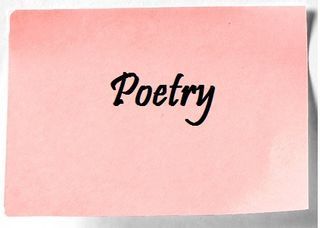 the dictionary. I thought it was a poem about everything.” – Steven Wright
the dictionary. I thought it was a poem about everything.” – Steven Wright
“Poetry is when an emotion has found its thought and the thought has found words.” – Robert Frost
“Being a poet is one of the unhealthier jobs – no regular hours, so many temptations!” – Elizabeth Bishop
“Poets are interested mostly in death and commas.” – Carolyn Kizer
“A poet can survive everything but a misprint.” – Oscar Wilde
Need an editor? Having your book, business document or academic paper proofread or edited before submitting it can prove invaluable. In an economic climate where you face heavy competition, your writing needs a second eye to give you the edge. I can provide that second eye.
<A HREF="http://ws-na.amazon-adsystem.com/widg... Widgets</A>Related articles
 Five great quotations about poetry
Five great quotations about poetry Five Great Quotations about Editing
Five Great Quotations about Editing Avoid using weak pushbutton words in story
Avoid using weak pushbutton words in story Don't lose sleep over this confusing comma rule
Don't lose sleep over this confusing comma rule Place commas inside quotation marks
Place commas inside quotation marks
May 17, 2014
Should you always follow ‘rules’ of writing?
Show don’t  tell
tell
Use active voice
Tell the story in present tense
As a writer, you’ve probably heard these and a thousand other “rules” about writing. As an editor, I’ve certainly advised them a well. So why doesn’t someone just a print a book of the “rules of writing” and make life easy for would-be writers?
That’s because they’re really not rules at all. They are guidelines, though – and arguably good ones to follow.
These guidelines really are only applicable today because they’re the current trend in modern literature, and then primarily in English-speaking countries. Charles Dickens and the other greats of 18th century literature certainly broke most of the rules...mainly because they followed a different set of rules/guidelines of what constituted good literature.
Indeed, as the culture changes so does the art that reflects and expresses it. For example, I’m seeing an increasing number of novels from my clients written in present tense, which I attribute to the popularity of stories told on television and motion pictures, which like theater productions tell stories in present rather than past tense.
In addition, the story you want to tell really needs to dictate how it is told. Because of this, many rules are broken in extremely well-told novels and shorts. Linear, chronological plotting? Toss that idea out if you’re writing magic realism, such as Gabriel García Márquez’s “One Hundred Years of Solitude.” Show don’t tell? Follow that advice too strictly, and there goes most of the prologues to such great science fiction novels as Isaac Asimov’s “Foundation” and Frank Herbert’s “Dune.”
Still, this doesn’t mean the guidelines (er, “rules”) should be ignored. The majority of literary and genre works still follow them, and current 21st century readers generally respond well to works in which the rules (er, “guidelines”) are followed. If you are going to break the rules/guidelines, you should do so for good reason – and it shouldn’t distract from your story.
Need an editor? Having your book, business document or academic paper proofread or edited before submitting it can prove invaluable. In an economic climate where you face heavy competition, your writing needs a second eye to give you the edge. Whether you live in a big city like Washington DC or a small town like Wink, Texas, I can provide that second eye.
<A HREF=“http://ws-na.amazon-adsystem.com/widg... Widgets</A>Related articles
 Five Great Quotations about the Power of Writing
Five Great Quotations about the Power of Writing Five Great Quotations for Aspiring Writers
Five Great Quotations for Aspiring Writers
May 16, 2014
Promote your book for free on various websites
A number  of websites will promote you book for free, usually by posting a thumbnail of the cover and a brief blurb about it. Some of these sites also let you post press releases about your book or to write a promotion for your book that they’ll tweet.
of websites will promote you book for free, usually by posting a thumbnail of the cover and a brief blurb about it. Some of these sites also let you post press releases about your book or to write a promotion for your book that they’ll tweet.
Given that these websites don’t bring in as many visitors as Amazon.com or Goodreads and so don’t sit very high on search engine rankings, taking the time to post your book on them may seem like a wasted effort. Still, many of these sites – usually geared at specific genres of independently published books or for ebooks – often boast thousands of readers. You never know what potentially interested reader will spot your book on one of those sites.
In any case, the real long-term benefit of these sites is when they link to your personal blog or website that promotes your book. This raises the ranking of your blog or website, which increases the chances that over time someone looking for a book just like you’ve written will stumble across it via a search engine.
Need an editor? Having your book, business document or academic paper proofread or edited before submitting it can prove invaluable. In an economic climate where you face heavy competition, your writing needs a second eye to give you the edge. Whether you live in a big city like Philadelphia or a small town like Scipio, Utah, I can provide that second eye.
<A HREF="http://ws-na.amazon-adsystem.com/widg... Widgets</A>Related articles
 Which social media is best to promote your book?
Which social media is best to promote your book? Use YouTube to promote your book
Use YouTube to promote your book Does your book cover design matter for ebooks?
Does your book cover design matter for ebooks? Distribute ebook on variety of ereaders, tablets
Distribute ebook on variety of ereaders, tablets Promote book with Goodreads author's page
Promote book with Goodreads author's page
May 15, 2014
Use stock art to create cover inexpensively
When creating 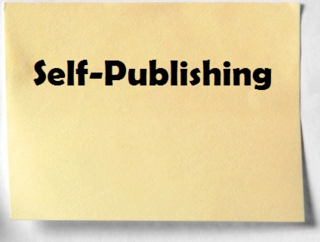 a cover for your self-published book, you’ll probably need a single, striking photograph or illustration that draws in readers. Since you’re a writer, not a photographer or illustrator, this can pose a problem. Where will you get such an image? Purchasing stock art can be a low-cost effective solution.
a cover for your self-published book, you’ll probably need a single, striking photograph or illustration that draws in readers. Since you’re a writer, not a photographer or illustrator, this can pose a problem. Where will you get such an image? Purchasing stock art can be a low-cost effective solution.
Stock art are photographs and illustrations that others have created and sell online through an agency. BigStock and Shutterstock are just a couple of more than a dozen companies that sell photos online. They can be downloaded directly to your computer.
Such collections of photos and illustrations literally put hundreds of thousands if not millions of images at your fingertips. Most can be purchased individually or for a subscription that come in well under a hundred dollars; this will a lot less expensive than hiring a photographer or illustrator to come up with a cover or you.
On the downside, you can spend quite a while searching for just the right image, and sometimes the photo you fall in love with won’t work for a cover. In addition, some stock art can look quite campy, as it was intended for advertisements rather than a book cover, but this was more true a decade or two ago than today.
When selecting stock art for your book cover, consider the following factors:
g Size – First and foremost, the stock art must be large enough to work as a cover. If you purchase a photo that is too small and enlarge it, the result will be a grainy or pixilated cover. Only purchase art that is larger than the space it needs to occupy on the cover. In addition, make sure the photo is 300 dpi.
g Shape – Just as you can’t fit a square peg into a round hole, so you’ll have great difficulty placing a photo whose horizontal side is longer than its vertical side (unless the photo is intended to wrap around the spin onto the back cover. Purchase a photo that is shaped the way it will be positioned on the cover. Of course, you always can crop the photo, but then the original must be much larger than the actual cover size.
g Text placement – Know in advance where you plan to place the book’s title and your name as author on the cover. Those spots should be fairly free of the stock art’s main subject. For example, if the photo is of an eagle in flight, the part of the photo where the title would go should be sky. You don’t want your title covering the bird.
g Color – You’ll want to coordinate the colors in the stock art with those used for the text. A good rule is to pick up a secondary dark color in the photograph or illustration and use it for your title. If your cover photo is of a fire engine and the text is the same primary red, the title and photo will wash out rather than complement one another.
Finally, always check usage guidelines before purchasing the photo. There also may be limitations on how you can use the stock art. Often using a stock photo or illustration for a cover requires paying for an extended license, whereas using it inside a book or a website page costs less.
Need an editor? Having your book, business document or academic paper proofread or edited before submitting it can prove invaluable. In an economic climate where you face heavy competition, your writing needs a second eye to give you the edge. I can provide that second eye.
<A HREF="http://ws-na.amazon-adsystem.com/widg... Widgets</A>Related articles
 Consider adding artwork to interior of your book
Consider adding artwork to interior of your book Does your book cover design matter for ebooks?
Does your book cover design matter for ebooks?
May 14, 2014
Get it right, at least on average: Data vs. datum
If looking 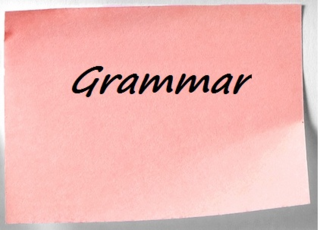 at a graph of how many times the verb coming after these two words is confused, the numbers would be off the chart.
at a graph of how many times the verb coming after these two words is confused, the numbers would be off the chart.
Datum means a lone, singular bit of measured information. Data is the plural of datum, as in Data about parking violations in New York City is available online.
Because of this, data technically requires a plural verb, as in The data are irrefutable. Of course, this sounds odd. Data seems to be a collection that is considered a single, unified object, in the same way that the United States is singular rather than plural.
My advice: Know your audience. If writing for a formal, academic purpose, show off your smarts by going with a plural verb. In all other instances, be a normal human being and use a singular verb.
Need an editor? Having your book, business document or academic paper proofread or edited before submitting it can prove invaluable. In an economic climate where you face heavy competition, your writing needs a second eye to give you the edge. I can provide that second eye.
<A HREF="http://ws-na.amazon-adsystem.com/widg... Widgets</A>
Related articles
 Flat line those errors on indices vs. indexes
Flat line those errors on indices vs. indexes When to use affect vs. effect
When to use affect vs. effect
May 13, 2014
How to add color to your fiction writing
Even if your 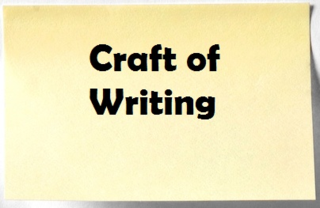 story offers a lot of dramatic tension and the sentences are tightly constructed, it still can feel a bit monochrome or colorless. When that occurs, the writing probably is not particularly vivid. Rather than read like a piece of fiction, the story instead will feel like a work of dry journalism.
story offers a lot of dramatic tension and the sentences are tightly constructed, it still can feel a bit monochrome or colorless. When that occurs, the writing probably is not particularly vivid. Rather than read like a piece of fiction, the story instead will feel like a work of dry journalism.
Consider this fairly colorless passage:
Kneeling before the car, Carl Steinar thought his wife appeared to be sleeping, but he knew that she’d simply lost too much blood. A tear fell from his eyes. In a single moment, every memory of their few short years with one another surfaced: the first night together; of how she loved Nebraska; of her hands as they caressed his neck; of their two boys. He stumbled back, tried to hold back the weeping.
The piece lacks several elements that could make it more vibrant:
g Descriptions – To create a sense of the world where your story occurs, you’ll want to describe the spatial setting, the time, and the characters. Not doing this is akin to watching a play without any scenery and with a sheet rather than costumes tossed over the characters.
g Imagery – Good fiction writing appeals to the readers’ various senses – sight, smell, sound, taste and touch. Since people experience the world through their five senses, including them in a story helps the reader vicariously experience the fictional world.
g Symbolism – Descriptions and imagery can carry additional levels of meaning by being presented as similes, metaphors or other figurative language. Such connotations can carry great emotional weight.
By using these techniques, the above passage could be rewritten as:
Kneeling before the car, all he could see was crimson blood. His wife appeared to be asleep, but he knew that crumpled body, jammed between the driver’s seat and projecting steering wheel, had simply lost too much vital fluid for it to be true. Then a mist of lavender netting covered her, as if she was a bride about to wake, and Carl Steinar realized he was viewing Gwen through his tears. In a single moment, every memory of their few short years with one another surfaced: the first night together; of how she loved Nebraska’s yellow sky and the wind’s glorious cry, of her soothing hands as she caressed his neck; of their two little boys. He stumbled back, lay fetal position in the middle of the road, and shaking his head desperately tried to hold back the weeping.
This version of the passage is more vibrant because it actually describes the scene. For example, the reader can better visualize the car wreck through the description of his wife’s body and of where Carl Steinar lays in the roadway. The passage also makes much better use of imagery. We have an array of colors in the scene, such as the crimson blood, Nebraska’s yellow sky, the lavender netting that his Carl’s tears. There also is an appeal to senses beyond sight, specifically touch through a description of the wife’s smooth hands caressing his neck, and of sound via “the wind’s glorious cry.” Finally, the passage even makes use of symbolism with the simile “as if she were a bride about to wake,” which emotes Carl’s feelings toward her and his sense of loss.
Need an editor? Having your book, business document or academic paper proofread or edited before submitting it can prove invaluable. In an economic climate where you face heavy competition, your writing needs a second eye to give you the edge. Whether you live in a big city like San Francisco or a small town like Fancy Gap, Virginia, I can provide that second eye.
Related articles
 Reviewer gives editor's novel positive review
Reviewer gives editor's novel positive review Add color to your fiction manuscript
Add color to your fiction manuscript
May 12, 2014
Consider using episodic fiction plot structure
One powerful  way to tell a short story is episodically. Called episodic fiction, it breaks from the traditional introduction-rising action-climax story structure by presenting an anthology of brief stories or anecdotes usually about a single character, set of characters, or place. Two popular examples of episodic fiction (though in novel form), are Thomas Pynchon’s “V” and Henry Fielding’s “The History of Tom Jones.”
way to tell a short story is episodically. Called episodic fiction, it breaks from the traditional introduction-rising action-climax story structure by presenting an anthology of brief stories or anecdotes usually about a single character, set of characters, or place. Two popular examples of episodic fiction (though in novel form), are Thomas Pynchon’s “V” and Henry Fielding’s “The History of Tom Jones.”
Since the episodes in such fiction do not depend upon cause and effect, transitions and unity of time not as significant as in a traditional five-part plot. But as with a traditional story, episodic fiction centers on resolving some issue or conflict; it might be about the main character deciding if she should give up her baby or adoption; it might be how a group of high school friends mature (or don’t mature) following the death of a classmate; it might be about a town faces the rise and fall of its economic fortunes.
In many ways, episodic fiction is like a slide show – each slide is about the same family vacation, but each picture is its own story. In the group of classmate death story, the first “episode” or scene of the story might show how Robert learning of the death from a good friend who’s broken up over it, consoling that friend, and then suppressing his own tears so he can be strong for his friend. The next episode/scene might show Lexi accidently stumbling across the deceased classmate’s parents clean out their child’s locker. A third episode/scene could be of Emily at the wake wishing she had expressed her appreciation of her fallen classmate when he was alive. A fourth episode/scene might be of Isaiah at the funeral, and so on.
Usually the episodes appear in chronological order, but just as a slide can be out of place in the show, a linear presentation of time doesn’t have to occur in the story – though there should be a good reason for this or the writer risks confusing the reader. In addition, each episode can vary in length. Generally the same point of view is used for each story, though from who’s perspective the story is told might change; to wit, third person limited could be used exclusively to tell the classmate death story, but the narrator would shift he perspective as the main character changes.
This story format lends itself to the use of a reoccurring image and of richness in sensory details. For example, in the classmate’s death story, perhaps the deceased student had curly hair. The image of the curl could repeat in various episode; maybe Emily twirls her own hair as she looks down at her deceased classmate’s framed picture atop the casket.
In any case, by story’s end, the message of the story should be apparent. In the classmate’s death story, the theme might be that “People should express their emotions/feelings more.” As the characters all pour out (or fail to present) their emotions in the story, this “lesson” is inferred. In contrast, presenting such a lesson in a traditional story format might come off as a trite “You see, Timmy” tale.
Need an editor? Having your book, business document or academic paper proofread or edited before submitting it can prove invaluable. In an economic climate where you face heavy competition, your writing needs a second eye to give you the edge. I can provide that second eye.
<A HREF="http://ws-na.amazon-adsystem.com/widg... Widgets</A>Related articles
 What is a story? An autopsy of a tale
What is a story? An autopsy of a tale Avoid card tricks in the dark when writing
Avoid card tricks in the dark when writing How to form your story's basic structure
How to form your story's basic structure
May 11, 2014
Five Great Quotations about Craft of Writing
“My task...is, 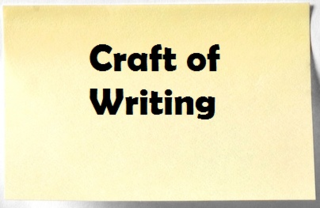 by the power of the written word to make you hear, to make you feel – it is, before all, to make you see. That – and no more – and it is everything.” – Joseph Conrad
by the power of the written word to make you hear, to make you feel – it is, before all, to make you see. That – and no more – and it is everything.” – Joseph Conrad
“The adjective is the enemy of the noun.” – Francois Marie Arouet de Voltaire
“Pay attention to the sound of words.” – Dave Wolverton
“An essential element for good writing is a good ear: One must listen to the sound of one's own prose.” – Barbara Tuchman
“As for the adjective, when in doubt leave it out.” – Mark Twain
Need an editor? Having your book, business document or academic paper proofread or edited before submitting it can prove invaluable. In an economic climate where you face heavy competition, your writing needs a second eye to give you the edge. I can provide that second eye.
<A HREF="http://ws-na.amazon-adsystem.com/widg... Widgets</A>Related articles
 Five great quotations about poetry
Five great quotations about poetry Five great quotations about fiction
Five great quotations about fiction Five great quotations about writing
Five great quotations about writing Place commas inside quotation marks
Place commas inside quotation marks Use consistent quotation mark, apostrophe style
Use consistent quotation mark, apostrophe style



